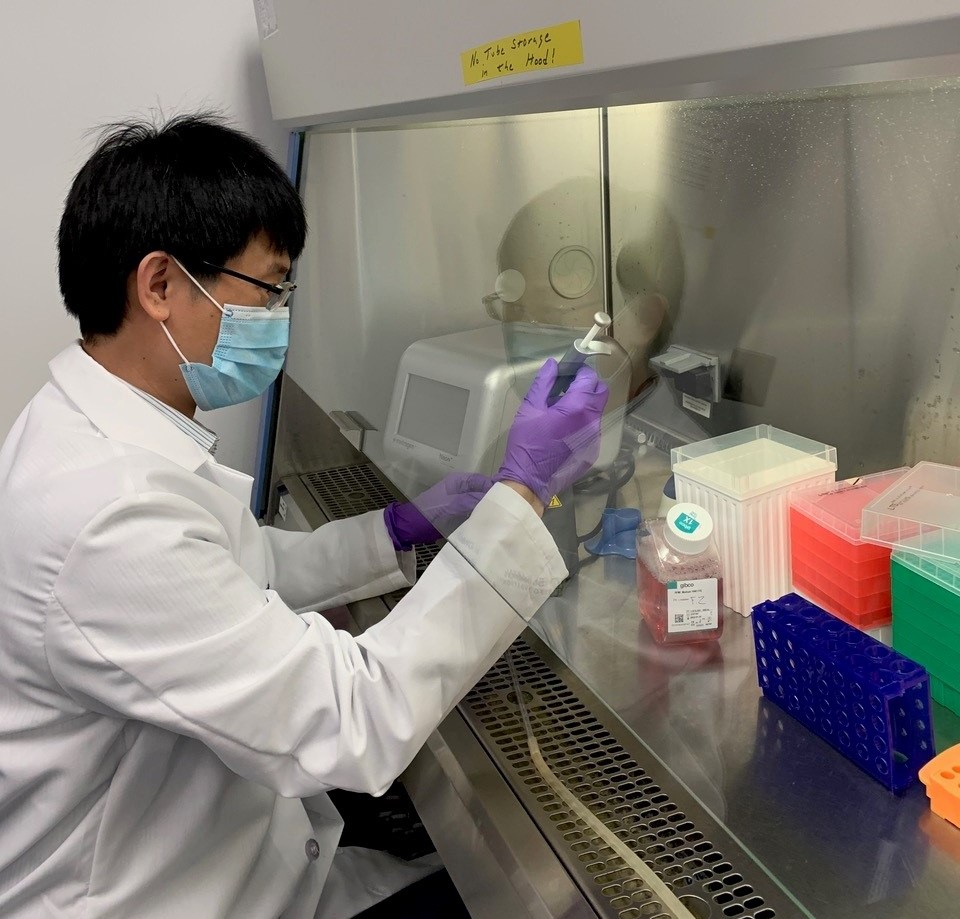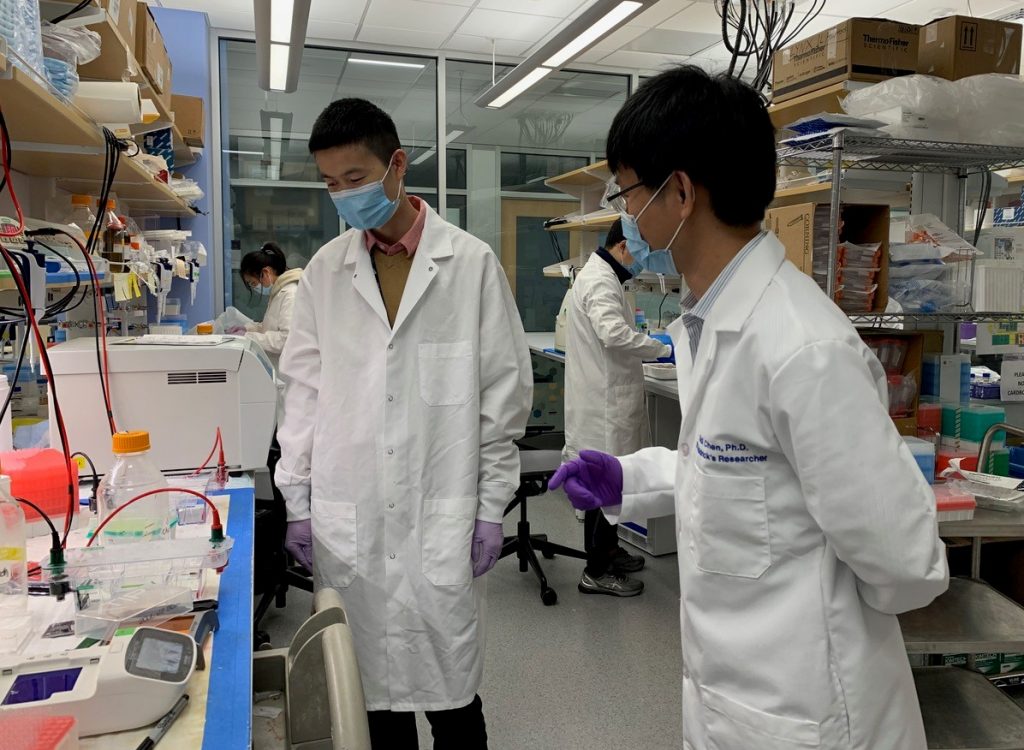Sidi Chen, PhD ‹ Back To 2021 Winners
2021 Winners
Associate Professor
Genetics, Systems Biology Institute
Yale School of Medicine
Vision
Our vision is to develop novel and more effective cell-based immunotherapies against cancer. Cell therapies have shown potent clinical activity; however, major challenges remain. In liquid cancers, despite high response rates, many patients relapse or suffer from life-threatening toxicity. Cell therapy has so far demonstrated little activity in solid tumors due to multiple hurdles. Thus, engineering better cell therapies is critical to allow them to achieve their full potential against cancer. This project if successful will be transformative, as it will advance cutting-edge technologies in cellular engineering and cell therapy development. Its success has the potential to advance novel cell therapy engineering technologies and bring lead candidates towards the clinic, which may have broad impact for diverse cancer patient populations.
Sidi Chen, PhD joined the Yale Faculty in 2015 in the Department of Genetics, Systems Biology Institute, and Yale Cancer Center. His research focuses on providing a global understanding of biological systems and development of novel breakthrough therapeutics. Dr. Chen developed and applied genome editing and high-throughput screening technologies, precision CRISPR-based in vivo models of cancer, global mapping of functional drivers of cancer oncogenesis and metastasis. He is leading a research group to seek global understandings of the molecular and cellular factors controlling disease progression and immunity. His group continuously invents versatile systems that enable rapid identification of novel targets and development of new modalities of cancer immunotherapy, cell therapy and gene therapy. His goal is to uncover novel insights in cancer and various other immunological diseases and develop next generation therapeutics.
Dr. Chen received a number of national and international awards including the Pershing Square Sohn Prize, DoD Era of Hope Scholar, NIH Director’s New Innovator Award, Blavatnik Innovator Award, Yale Cancer Center Basic Science Research Prize, AACR NextGen Award for Transformative Cancer Research, Ludwig Foundation Award, Damon Runyon Cancer Research Fellow, Dale Frey Award for Breakthrough Scientists, TMKF Innovative/Translation Cancer Research Award, BCA Exceptional Research Grant Award, MRA Young Investigator Award, V Scholar, Bohmfalk Scholar, Ludwig Family Foundation Award, St. Baldrick’s Foundation Award, CRI Clinic & Laboratory Integration Program (CLIP), MIT Technology Review Top 35 Innovators (Regional), and Sontag Foundation Distinguished Scientist Award.
Building transformative platforms for next-generation cell-based therapy

Cell therapies have shown potent clinical activity; however, major challenges remain. In liquid cancers, despite high response rates, most patients relapse. Cell therapy has so far demonstrated little activity in solid tumors. Multiple hurdles exist for better cell therapy, including metabolic suppression in the tumor microenvironment, insufficient T cells trafficking to the cancer site, lack of effective cancer cell killing, severe toxicity especially, and sub-optimal levels of T cell proliferation. Various efforts to enhance cell therapy are on-going in the field but none has yet overcome the solid tumor challenge. Thus, engineering better cell therapies is critical to allow them to achieve their full potential against both refractory / recurrent hematological cancers and various solid tumors, both of which have broad and urgent unmet medical needs.
“This prize will allow us to perform a high-risk, high-reward project to advance highly enabling technologies for development of novel cell therapy against cancer.”

Recently, we have been developing a novel platform for advanced massively parallel engineering of therapeutic cell candidates. The overall goal during the supported research is to develop novel and more effective cell-based immunotherapy against cancer. Conceptually, to our knowledge this is an entirely novel project with few parallels. This project if successful will be potentially transformative, as it will advance cutting-edge technologies in cellular engineering and cell therapy development. This project has a clearly defined application to cancer therapy and if successful has the potential to advance novel and highly enabling technologies for cell therapy engineering.
“Our innovation is the versatile technology platforms that enable us to seamlessly engineer human immune cells, and rapidly generate and test many therapeutic cell candidates.”